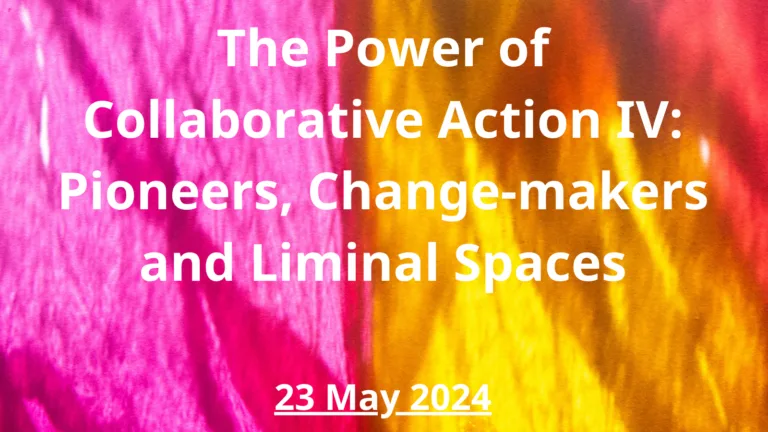
On the 23rd of May 2024, we held our fourth NCACE Annual Showcase: The Power of Collaborative Action IV: Pioneers, Change-makers, and Liminal Spaces, spotlighting boundary-breaking cultural Knowledge Exchange and collaborative practices, people, and projects that are working to unpick some of the wicked problems that vex us all.
The individuals and projects involved in this event are pioneers; audacious individuals moving research, practice, and policy forward in new and impactful ways by addressing some of society's most challenging problems often working from grassroots up.
As Suzie Leighton (Co-Director, TCCE & NCACE) noted in her opening remarks, “Dire times call for soft measures,” a phrase coined by the Finnish artist Sonya Lindfors, emphasising that impactful collaborations don’t need to be “loud” to be transformative.
Highlights
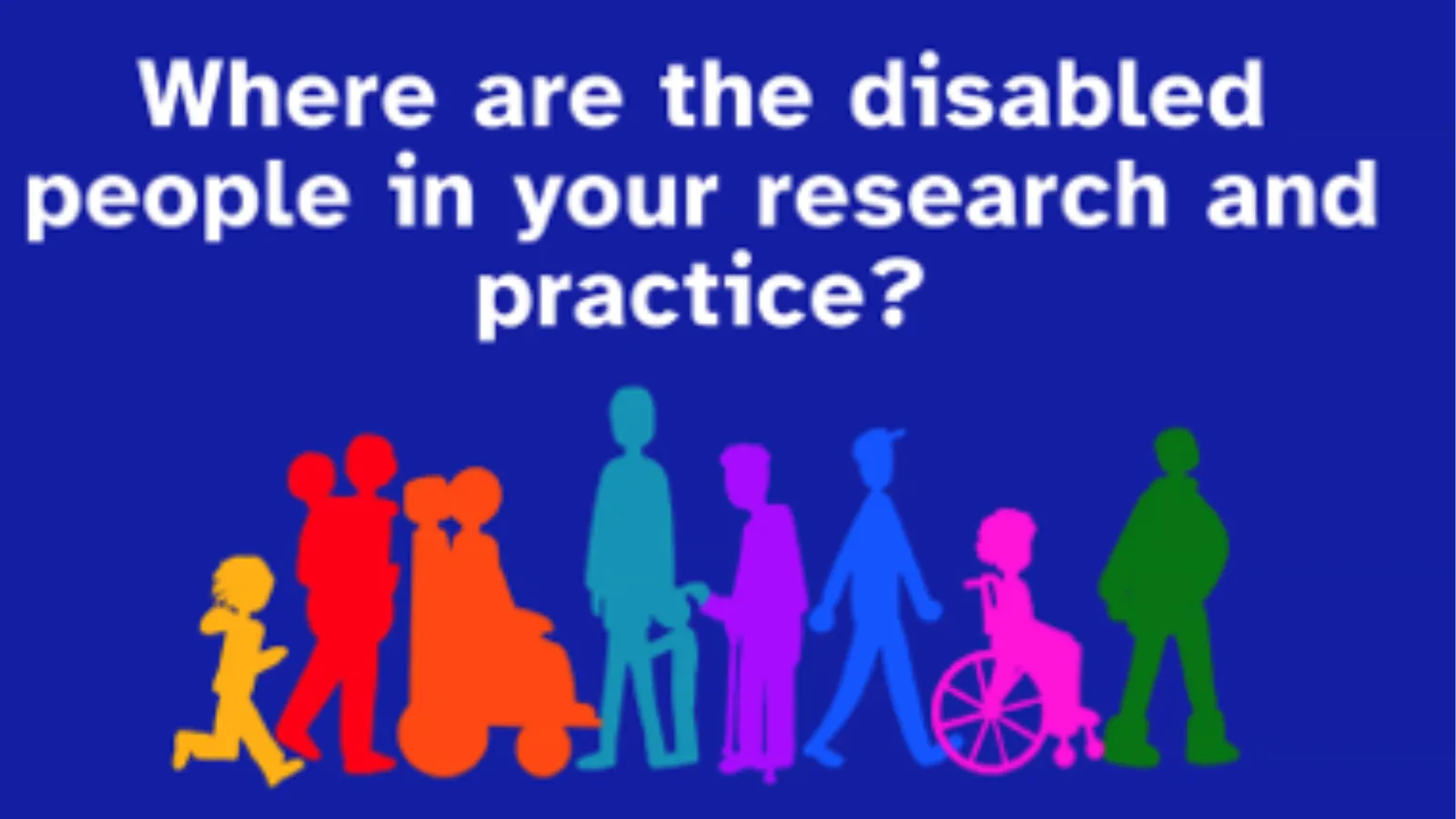
Touretteshero
Audio Presentation: Listen Here
Slides: View Here
Where are the disabled people in your research and practice?
Just 6% of the academics in the UK declare a disability and disabled people make up over 20% of the population. If we are not present in your research then it is because ableism is present in what you are doing!
Jess Thom, Co-Artistic Director, and Dr. Will Renel, Director of Research at Touretteshero, opened our showcase with this thought-provoking case study. Using Tourettes syndrome as a catalyst for inclusivity, they emphasised the importance of including disabled people as research leaders and contributors to knowledge, challenging institutional ableism, and promoting anti-ableist practices.
With institutional ableism still heavily entrenched, they use terms such as “hierarchy of brains” to highlight the enormity of assumptions about what knowledge is, who it’s for, who is involved in creating it, and the social model of disability, further elaborating on the essentiality of the Disability Justice Framework which sets out 10 principles to address the root of inequity, not just the symptoms.
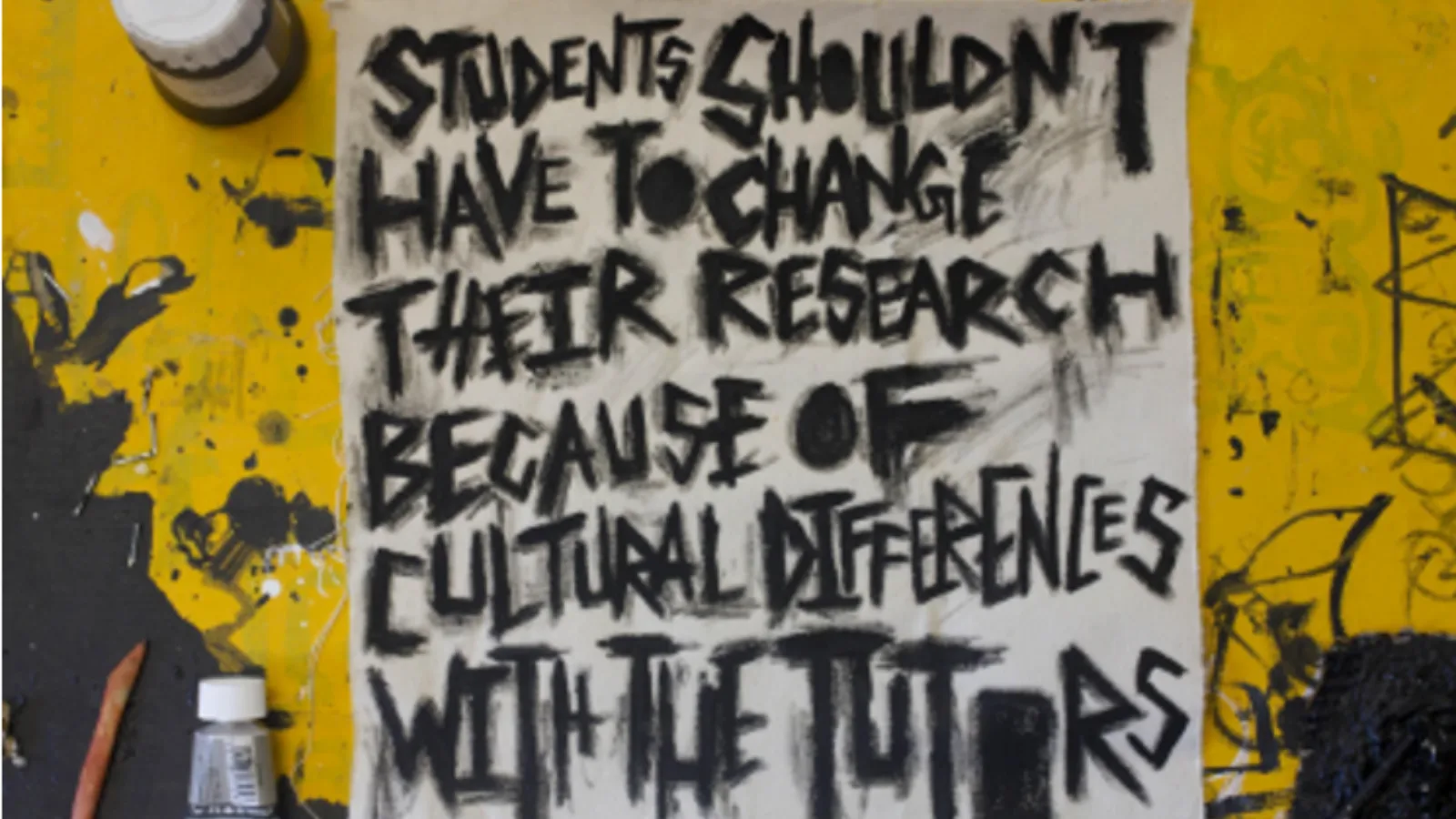
Shades of Noir - Applied Radical Collaboration vs Exploitation
Slides: View Here
Aisha Richards, Founder and Director of Shades of Noir, explored the differences between being an ally and a collaborator in this first keynote, which makes us think about our motivations, gains, inclusivity, and hierarchy in collaborations. She introduced her “Netiquette” for creating safer spaces, along with “Key Terms” to enhance understanding.
Coining the term “Be-Yondering” Aisha invited us to reflect on advancing from the Be to the Yonder to achieve Radical Collaborations. Her insights on reparation highlight the need for more substantial efforts beyond monetary compensation to support marginalized communities, stating; “we have to do more” - give more time, career advice, opening up of networks, and so many other ways to remunerate with opportunities already given to those with privilege and power.
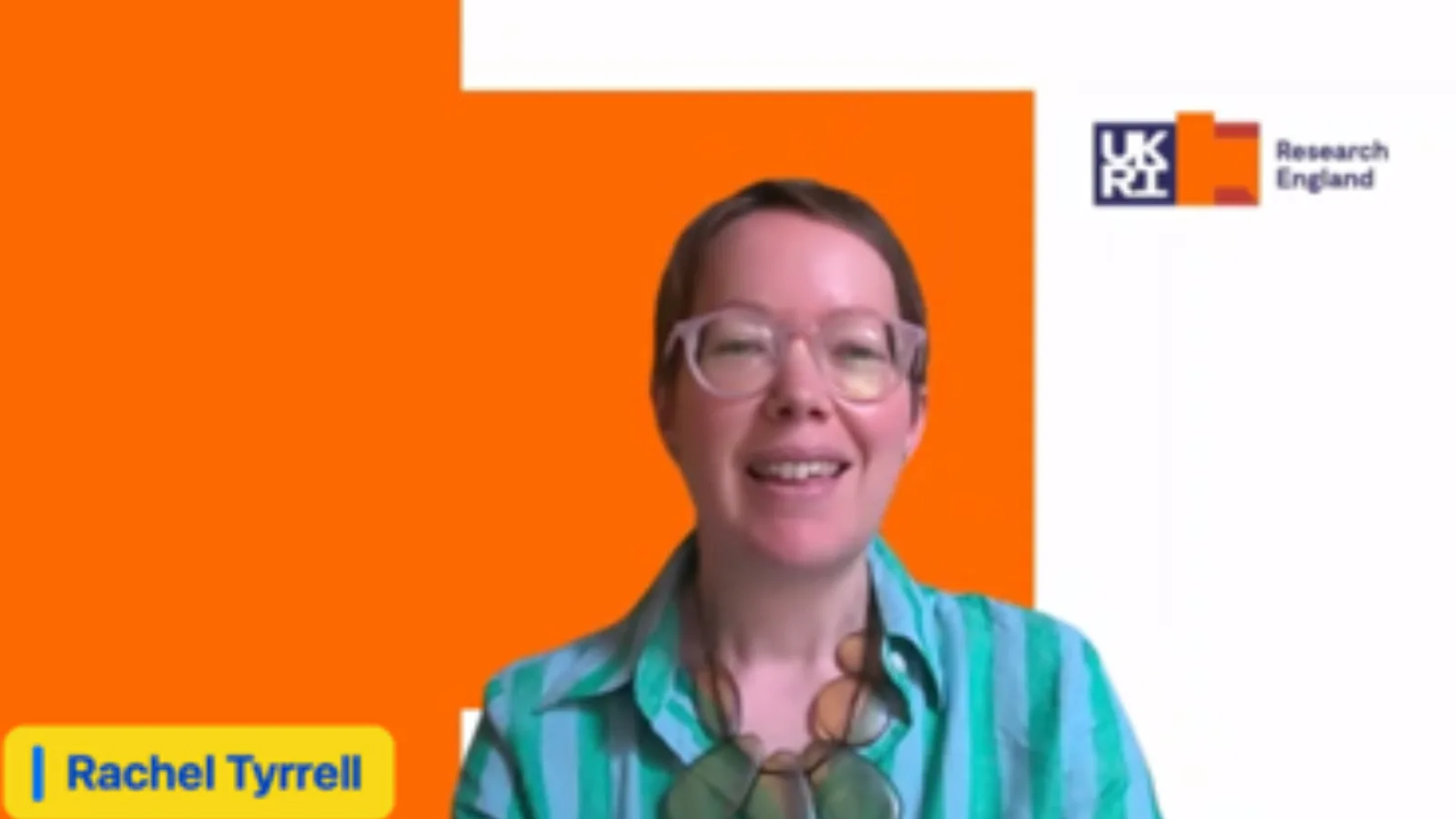
Research England - KE Policy development, funding cycles and the upcoming spending review period follow an election
Audio Presentation: Listen Here
Rachel Tyrrell, Associate Director of Knowledge Exchange at Research England, provided a horizon scan of their policy and funding landscape.
This event took place on the morning after the General Election 2024 announcement, which constrained what Rachel was able to share with us, particularly thinking about the future, but didn’t curtail the abundance of insights and opportunities presented to us including;
- Formula funding to specialist providers or specialist institutions, recognising unique roles, circumstances, and excellent research activity
- Context of liminal spaces
- Project funding allocation, HEPS and Connecting Capability Fund CCF
- Future funding determined by the future spending review outcomes
- Current policy development and the government’s review of formula funding for KE
- Reviewing strategic institutional research funding
- Government priorities, particularly on economic growth in KE policy, unpicking the focus on commercialisation and economic growth
- Doing spinouts well
- Long-term knowledge exchange metrics, data, and evidence including the National metrics programme
- Better evidence as a theme
- Sector insights
- Further developing the KEF
- Recognition of the breadth and depth of charities, challenges and opportunities
- The REF 2029, people culture and environment strand,
Rachel concluded by inviting applications to the REF People Cultural Environment (PCE) Pilot Assessment Panel. The call closes at midday on the 12th of July.
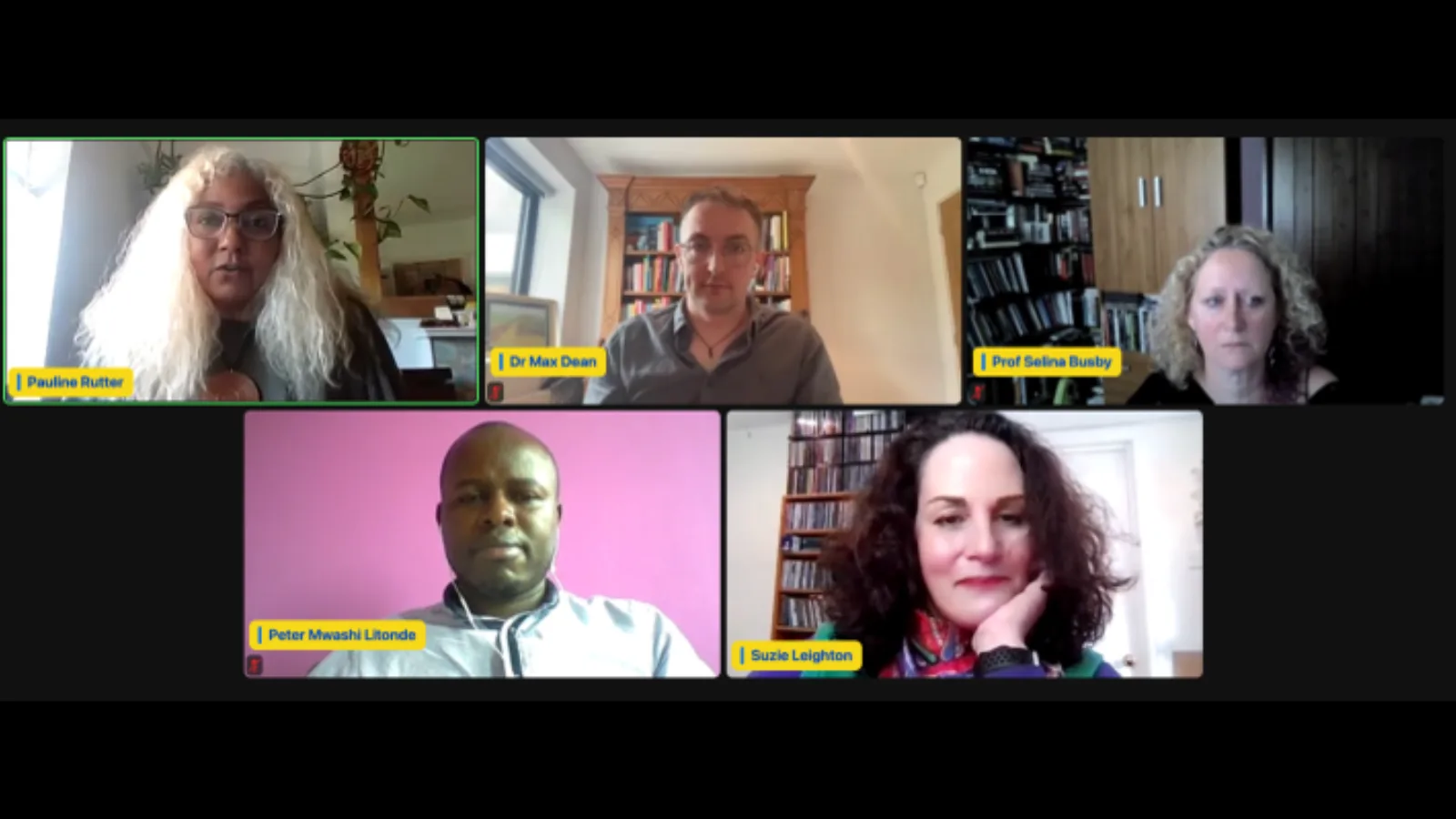
Collective Action - Panel 1 Discussion
Audio Presentations: Listen Here
Decolonising Memory Slides: View Here
Kenyan Rock Art Slides: View Here
Chaired by Researcher, Activist and Artist Pauline Rutter, this panel discussed citizen science and cultural heritage preservation, with methods of international collaboration and community engagement ensuring sustainable legacies and empowered marginalised communities.
The Decolonising Memory collaboration explores Bristol's transatlantic trade and enslaved African history through dance and movement, drama and technology, and has been an integral part of theatre-based learning. Rock Art Safari focuses on preserving Kenyan rock art and engagement of local schools. Through partnerships between cultural institutions, universities, and community organizations, speakers showcased inclusivity and community ownership in cultural institutions, emphasising the importance of diversifying outputs.
Discover new approaches to international collaboration, the breaking down of hierarchies between Higher Education and communities, the values of different types of knowledge - past, embodied, individual and collective - blended live and remote methods of collaboration, skills sharing, impacts of cultural heritage preservation, supporting economies and leaving legacies.
Panellists:
- Decolonising Memory: Jessica Moody, University of Bristol, Cleo Lake, Community Activist & Artist, Kwesi Johnson, Choreographer and Creative Technologist (Cultural Assembly)
- Rock Art Safari: Prof. Selina Busby (Royal Central School of Speech and Drama), Dr Paul Sutton, Dr Max Dean (Centre for Performance, Technology and Equity) and Peter Mwashi Litonde, Kenyan Artist
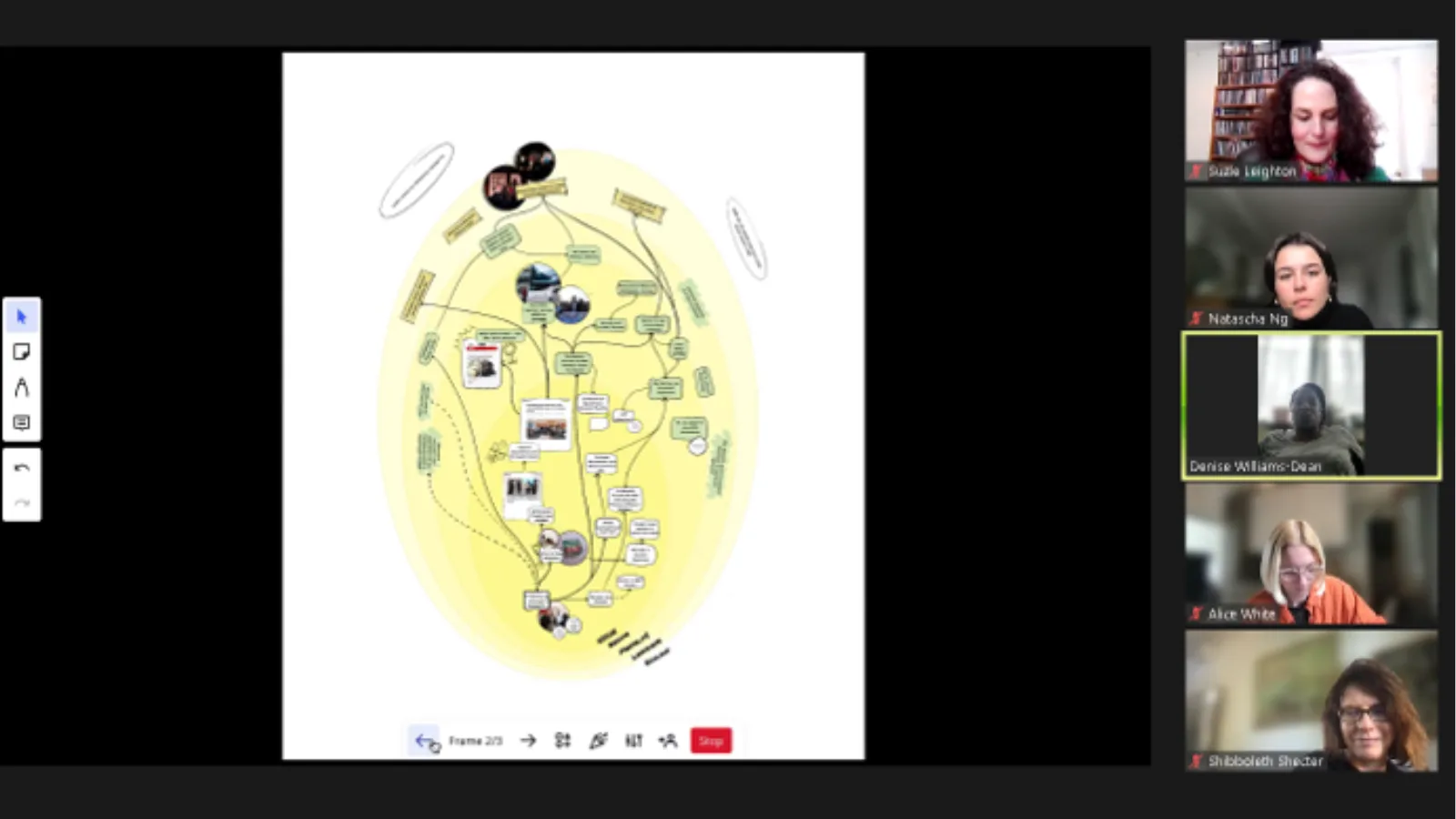
Sustainable Change Through Collaboration - Panel 2 Discussion
Audio Presentations: Listen Here
Cinema Nation Slides: View Here
The Lullaby Project Slides: View Here
This panel emphasised on the importance of inclusivity and accessibility in collaborative arts and education, highlighting creative approaches to community empowerment and mental health support.
The Camberwell Model demonstrated how partnerships between university and community organisations can lead to social impact, starting with highlighting their work with a local primary school which has long recognised the power of the creative arts in allowing children to express their emotions, and in many cases trauma, through art and drama therapy sessions.
Cinema Nation, a queer-led organisation based in Merseyside, presented how their experiences with structural, hierarchical, financial and cultural imbalances in working with Universities has led to an innovative framework that underpins collaborative working. Arts, grassroots and community group funding are too often tied to delivering particular outputs and they have come up with clever models of working that pivot their once-seen as “tokenistic” value in academia into becoming Research Associates.
[The Model for Co-writing funding applications is available here. Before using or sharing this model with others please get in touch with the Cinema Nation team directly and credit them]
The Lullaby Project gave the final presentation of this panel on a creative health program developed for the NHS that leverages the power of music to mitigate the effects of social isolation on new mums and families during the pandemic. It has supported maternal wellbeing, promoted family bonding and created social impacts. These evidence-based music programmes play an important role in society and contribute to happier, healthier and more resilient communities. The collaboration focuses on evaluation research in academia and its transformative potential in women's health and social care.
Panellists
- The Camberwell Model - Shibboleth Shecter, Alice White and Natascha Ng (Camberwell College of Art), Denise Williams-Dean (Chair of Southwark and Peckham Citizens, Chair of Governors) Lead governor for safeguarding, Oliver Goldsmith Primary School.
- Community Research Networks - Michael Pierce and Monika Rodriguez (Cinema Nation)
- Lullaby Project - Kerry Wilson (Liverpool John Moores University), Jo Ward (Change Maker) and Karen Irwin (Live Music Now)
Closing Remarks
Audio: Listen Here
In their closing remarks, Matt McCullum (AHRC Associate Director of Programmes) and Evelyn Wilson (Co-Director, NCACE) emphasised that many questions for consideration have surfaced at this event and the importance of sustainable projects, inclusive collaborations, and addressing systemic injustices. They encouraged us to continue to champion, and shape the narratives that highlight the transformative potential of collective action.
Listen to the full event recordings in our Soundcloud
Explore the presentations and slides through the links provided and join the conversation on our Padlet here
Let’s continue driving change and creating lasting impacts through collaboration.
#Collaboration #Innovation #Activism #Sustainability #CommunityEmpowerment #CulturalExchange #EventRecap
